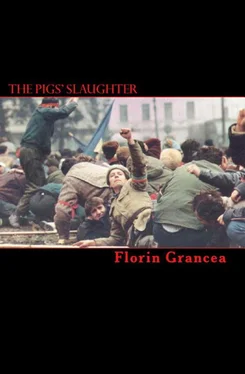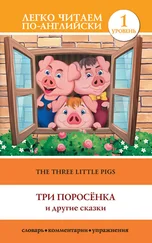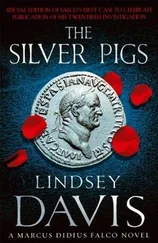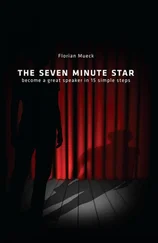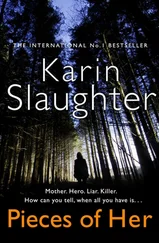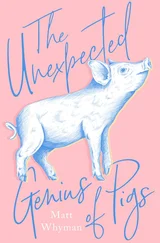So I had to set up my work space, and I took a small anvil that we always used from the kitchen and a common midsized hammer upstairs together with an old tablecloth. Since the dining table was still in my room, I wanted to work there and watch the Revolution while cracking the nuts.
First I woke up my sister and asked her to go downstairs to have her breakfast. During holidays we almost never had breakfast together but my mom did not care. We did have to eat lunch and supper together. Our parents always had breakfast without us, at 6 am, one hour before we would wake up. Their jobs started at 7 am so they had to wake up early every day. With Felicia gone, I turned on the TV and it was like the TV hadn’t been turned off at all. It was like watching a rented videotape from the position you left it the previous night.
The same people were still there on the same screen, more tired than when they first entered the studio, but still the same. It was like they were afraid that they would lose their share of the new power if they left. Still, seeing them was comforting. It meant that Ceauşescu wasn’t back and we were still fighting him. It also meant that the Arab terrorists trained by Ceauşescu weren’t as powerful as everyone had feared. That morning I thought that despite seeing that the shooting was still going on we were about to win our freedom at last.
Did German kids crack nuts for their fruitcakes? I doubted it. I once saw in a German magazine a picture with fruitcakes that looked so much like ours, and I imagined how delicious they were and how easy to get from the stores. Instead, I had to work for mine, and I wasn’t so happy about that.
I took a blanket and spread it on the dining table. On it I put the old table cloth and while sitting down I placed the anvil in front of me. The blanket was to protect the dining table but also to deaden the sound. If I wanted to watch TV the nut cracking had to be as quiet as possible.
Bang, bang. The hammer would hit the nut first lightly and then decisively. Bang, bang. Minding not to hit my fingers, bang, bang. I would continue until a pile of cracked nuts had accumulated and then stop and take the nuts out of their shells.
My sister came in and began to help me which I was grateful for. I got on with smashing and cracking the nuts while she took on the job of cleaning the nuts from the smashed shells. We were such a good team.
It was then that we heard that the Otopeni airport had been attacked by terrorists and the brave soldiers defending the building were fighting back. And we cheered. Me, especially, I was so proud of our great Army. So proud.
Proud also were the soldiers who opened fire on the three trucks and the civilian bus that came to attack them.
They were proud but they weren’t free. They were nothing like private Radutoiu. Back in 1944 he was as young as they were when, as a private, he was parachuted into the war near Odessa, on the Eastern Front where Romanians and Germans were fighting a lost battle against the Soviet Red Army. When he left the plane he had two items with him: an assault rifle and a Bible. Before reaching the ground he had already dropped his rifle. “Why?” was my question when he told me that story the very first time. “Because written in my Bible was THOU SHALT NOT KILL. It was my choice,” he said, and he didn’t realize it but he was giving me the same definition of freedom that that French guy called Sartre coined after WWII was over. Private Radutoiu started to walk home, a small village in Oltenia, the very moment his feet touched the ground. And turning his back on the war he choose to be free.
“What happened next, did you make it home?” I asked.
“Yes, of course. God was with me. The next day I ran into some Russians. There I was, Bible in hand, looking for plants or fruits I could eat when I saw, not more than 50m away in a ravine, a tank. A T34. Waiting. They saw me, too, because the tank started to turn slowly in my direction. Boom, boom, boom. They were firing a heavy machine gun, but I’m not sure they really wanted to hit me because I wasn’t hit. So I started to run, and ran under a tree. See, there were almost no trees in Odessa, except the huge one I was running towards, and the Russians behind me were boom, boom, boom. I prayed to God and got behind the tree and the tree was shaking. Boom, boom, boom. And I heard the tank moving, getting closer but I stayed there and didn’t move. And the tank got so close I could hear them laughing and then it stopped and someone shouted something at me so I came out from behind the tree. Bible in hand. And we looked at each other. They were no younger nor older than I. Just like me, but dressed different. And then the tank started to move, turning away and I was left alone. I guessed that it was a good idea I dropped my rifle”, he smiled, visibly satisfied with that outcome.
“So, how did you get across all that land to Oltenia?” I asked him again, expecting more miracles, but he caught me by surprise when he said:
“On my horse!”
“Your horse? You had no horse, you jumped from a plane, Bible and assault rifle only, no horse”, I said in disbelief.
“Yes, I had my Bible. And I was getting close to the Dniester river. It’s a huge river, you know. And there were other soldiers too. Maybe running home, like me, or retreating to other positions. I didn’t ask. They didn’t tell. But there was also a Wehrmacht officer. He was riding a superb horse, but he couldn’t cross the river on it. So he set the horse free and jumped in the river and swam for half an hour to reach the other side. I was watching. And he got there and called the horse, but the horse didn’t move. That was the moment I knew that horse was mine. God Himself was giving me a horse, and I called it as we called our horses back home, and the horse came. And I got on it and jumped in the river, and in less than 10 minutes we were already on the other side”.
“And the Wehrmacht officer?” I asked eagerly.
“He came to me and said that that horse was his, but I answered in German ‘You’re wrong, Herr Officer. Your horse is on the other side of the river. This is my horse. If you want it we can swim back and you can bring it over’. He had a pistol, like all Wehrmacht officers, but I wasn’t afraid. I was holding my dry Bible in my hand, and the officer saw it and smiled and asked me to take care of that horse… even now, after more than 50 years I pray for him and thank God he abandoned that beautiful horse… How proud I entered my village riding it” he said finishing his story.
As I told you before, the killers at the Otopeni Airport were proud too. And the truth is they stayed proud until they went outside to kill what was left of their ‘attackers’. “Take no prisoners”, was the order, and they were about to execute it when they saw that something was wrong. Terribly wrong. So they dropped the order and took prisoners. The terrorists were just a bunch of butchered kids, and they started to yell at and accuse them:
“You are terrorists, you came here to kill us”, they yelled and they even hit them in the face with their AKM’s, and blood was spilled inside the airport building, but the ‘terrorists’ were afraid. They looked at them with abject terror in their young eyes, so the brave Romanian soldiers who decimated half of them minutes before were not so proud anymore. Why did they shoot their guns? Nobody directly threatened their lives. Of course the orders were clear. The orders came from the top and they were classified. Three trucks full of terrorists dressed like army recruits were about to come and try to kill them. Nobody was to be taken alive but these were no terrorists. They were real recruits, they knew that but they were still angry. They had killed innocent people, so they continued to yell at them.
Читать дальше
